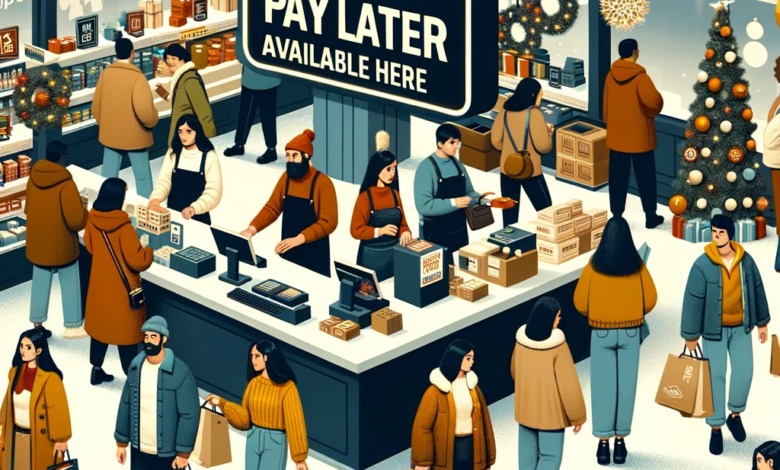
As the holiday season approaches, an increasing number of American consumers are turning to “buy now, pay later” (BNPL) payment plans. This trend is expected to see significant growth this season, indicating a change in how consumers are managing their holiday expenditures. While this shift offers benefits to retailers, it also raises concerns among credit experts about the potential risks associated with this payment method.
BNPL services, offered by companies such as Affirm, Afterpay, and Quadpay, are becoming increasingly popular at major online retailers like Amazon and Walmart. These services allow consumers to break their purchases into multiple interest-free payments spread over weeks or months. This payment option is particularly favored by younger generations, with 28% of Gen Z and 27% of millennials planning to utilize BNPL this holiday season.
The allure of BNPL services is understandable. For instance, instead of paying a lump-sum of $200 upfront for a holiday gift, a consumer might opt to pay in $50 installments every two weeks. These services typically don’t require a hard credit inquiry and some even offer interest-free terms. However, there are significant risks involved. Missing scheduled payments can lead to steep late fees, up to 25% of the past-due amount, depending on the BNPL provider. Some services, such as Affirm, may charge high-interest rates of up to 30% APR.
Moreover, if a consumer fails to repay the balance when due, it could lead to being reported as delinquent to credit bureaus. This not only damages one’s credit score but also makes it challenging to secure favorable terms on future financial products. Consumers are advised to read the terms and conditions closely before agreeing to a BNPL agreement, looking out for hidden fees that might be embedded in the contract.
This shift towards BNPL options indicates a broader change in consumer spending habits, especially during financially straining times like the holiday season. While BNPL plans can be a useful tool for managing expenses, they also pose a risk of leading consumers down a path of financial distress, especially if they take on multiple loans or fail to meet repayment terms.
As more Americans opt for BNPL services this holiday season, it’s crucial to remain aware of the potential pitfalls. This trend underscores the importance of financial literacy and responsible spending, as the ease of access to BNPL options might tempt consumers to spend beyond their means, leading to long-term financial repercussions.





